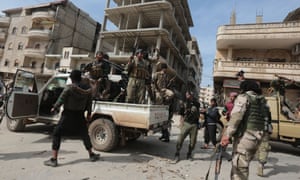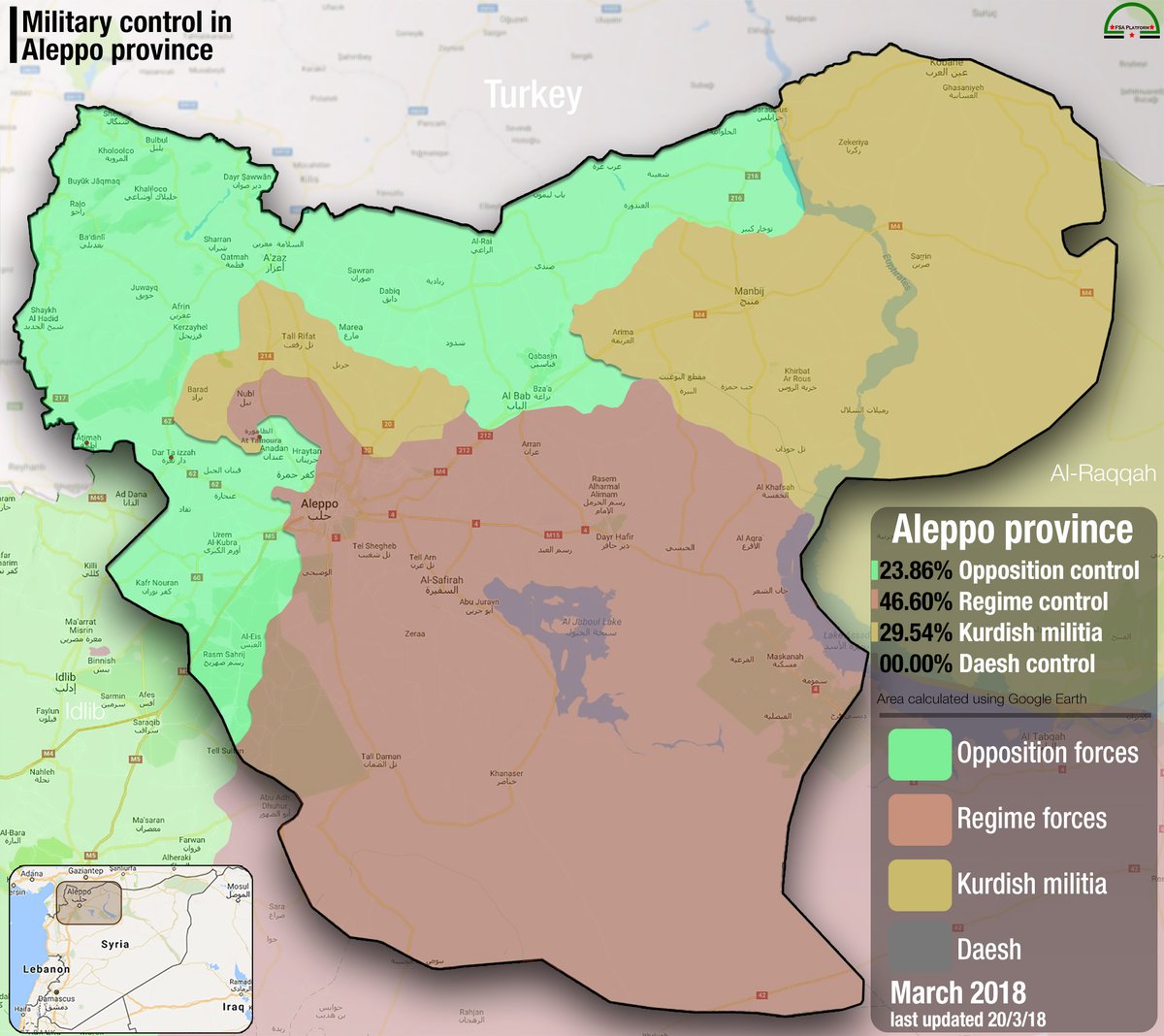
'The Syrian rebel commander Abu Ahmed was smiling. His troops had played a key role in Turkey’s assault on the Kurdish enclave of Afrin in northern Syria, a fight they have won.
Abu Ahmed is a senior officer in the 10,000-strong rebel force that, with Turkish backing and instigation, took control of Afrin on Sunday after a two-month battle. His name has been changed, along with others, to freely discuss their sensitive relations with their backers in Ankara.
Their quick victory in a fight against an adversary trained and armed by the US, which had ousted Islamic State from vast tracts of territory, underlined the growing power of a rebel army in Syria’s north, armed and paid by Turkey, that now comprises three legions and controls a growing swathe of territory.
Throughout northern Syria, bands of disparate rebel groups have fallen in line behind the Ankara-backed project, which has imposed military discipline on fighters that Washington, while covertly backing, had deemed too fractious and weak to defeat Isis.
“I mean, even Bashar al-Assad didn’t succeed in uniting us,” said one rebel official. “We are militarily and politically weaker than the regime, which is using scorched-earth tactics and areas are falling while we are accusing each other of betrayal.
“The people now hate all the rebel factions, and this will change when there is a unified army,” he added.
Critics, including within the opposition, say they are no more than mercenaries fighting Turkey’s battles, pitting Syrians against Syrians. Their fighters, while acknowledging they have no ultimate say in the broad contours of the war, disagree.
“If Assad stays with his apparatchiks this will not be over, but if there is a transition away from Assad and his top echelons in the leadership, we can work together with the army with the support of the international community to impose security on all the liberated areas,” said Abu Ahmed’s political aide. “And if we are tricked, the weapons are still there, and the fighters are there, and it will be a fight to the death.”
It was Ankara’s second major campaign in Syria. In August 2016 it launched Euphrates Shield, an operation that relied on Syrian rebel groups to clear towns controlled by Isis from the border and halt Kurdish expansion west of the Euphrates river.
After the campaign, Turkey sought to better organise and train the rebels allied with it, providing them with training, arms, and even a monthly stipend for the fighters in the military factions that join the alliance. The three legions that form the rebel army, which nominally falls under the authority of a barebones transitional government formed with Turkish backing, are led by defected Syrian soldiers who are themselves advised by senior Turkish military officers, according to rebel officials and commanders.
Rebels say they conducted the vast majority of the fighting in Afrin, backed by Turkish artillery and fighter planes. They are convinced that the battle was an overall strategic victory, because it will open a ground corridor into nearby Idlib province, and link them up with other rebel factions that want to join the coalition there.
While acknowledging their lack of agency in determining the course of the war, they see no problem in aligning themselves with Ankara, given what they see as a convergence of interests in Syria. The prospect of a united rebel army, as the war in Syria enters its eighth year, appears to overpower their dependency on an ally with whom their goals might not always align.
“The main goal is to build an army for the opposition, and we built a nucleus,” said one rebel commander. “The regime doesn’t make its own decisions, it’s basically a military faction like all the rebels, and neither does the opposition. When the international powers agree, [the war in] Syria will be over, and when that happens, time will help everyone forget.” '

0 Response to "Syrian rebel victory in Afrin reveals strength of Turkish-backed force"
Post a Comment